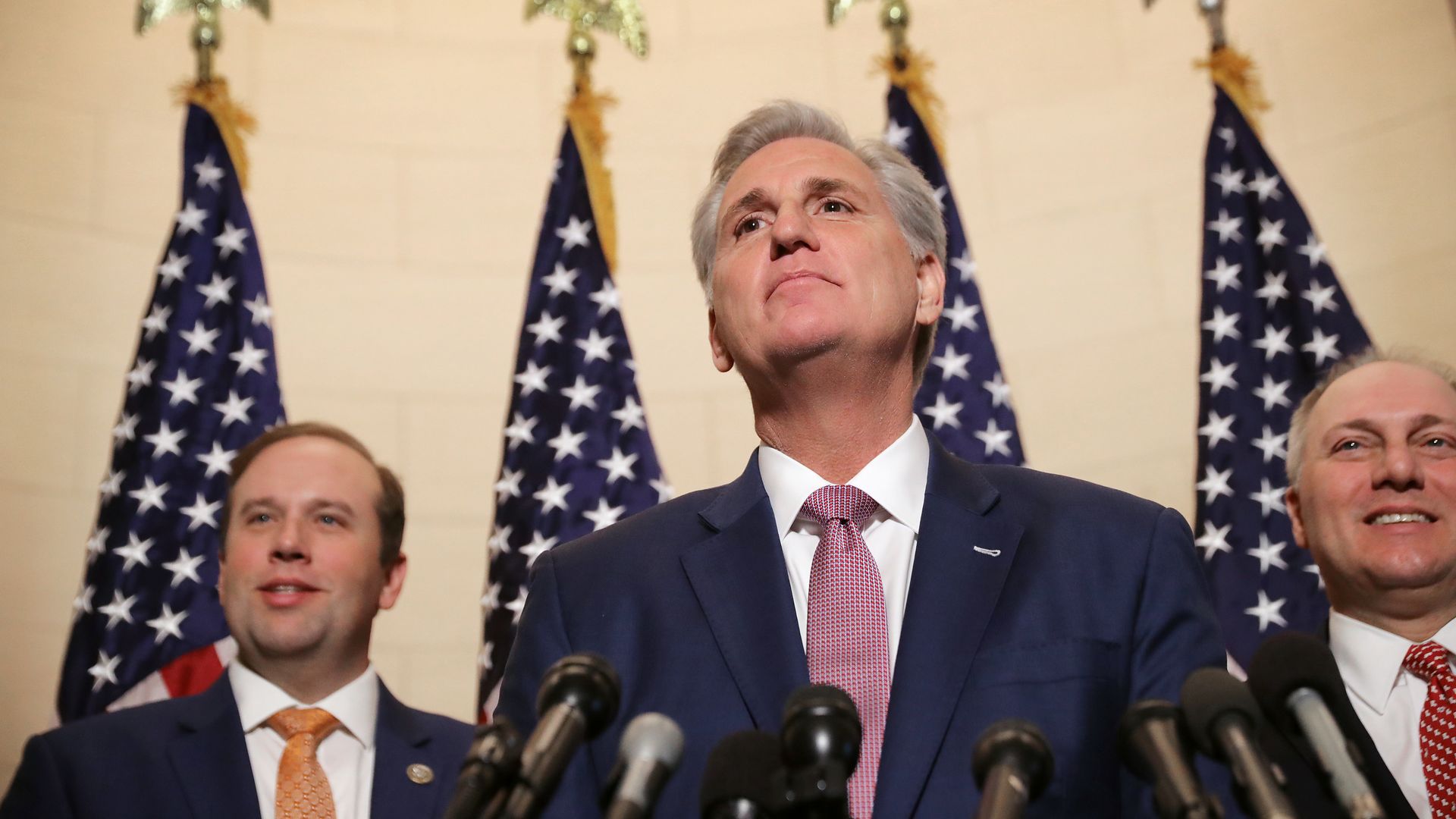Bipartisanship ends this week with stimulus vote
Add Axios as your preferred source to
see more of our stories on Google.

Rep. Jason Smith (from left), House Minority Leader Kevin McCarthy and Minority Whip Steve Scalise. Photo: Chip Somodevilla/Getty Images
Bipartisanship - at least over President Biden’s $1.9 trillion stimulus plan — appears over, with House Democrats ready to approve the measure this week through a party-line vote.
Between the lines: The GOP, which is already whipping against the bill, plans to cast it as a progressive wishlist and argue Democrats are bulldozing Republicans despite Biden's pledge to work with them.
- "Instead of stimulus, I call it for what it is — the Biden bailout bill," Rep. Jason Smith (R-Mo.), ranking member of the House Budget Committee, tells Axios. "It's an abusive process and a lot of reckless spending."
But, but, but: Republicans are ignoring their own history as well as public opinion, given the rescue package has widespread bipartisan support nationwide.
- In 2017, the GOP used the same budget reconciliation process in trying to repeal the Affordable Care Act and pass President Trump's tax cut with simple majority votes. The health care repeal failed when Sen. John McCain gave it his famous thumbs-down; the $1.9 trillion tax cut passed with just 51 votes.
- Biden is seizing on this — making his case directly to the American people and reminding voters of his years working with Republicans in the Senate.
- One reminder came Saturday, when Biden visited his old friend Bob Dole. The former Senate Republican leader recently announced he has Stage 4 lung cancer.
Details: Democrats are forging ahead so they can offset the scheduled expiration of unemployment benefits in mid-March. The 591-page legislation includes:
- Stimulus checks of up to $1,400 per person for Americans making up to $75,000 a year.
- Increased weekly enhanced unemployment insurance to $400 a week and an extension of those benefits through August.
- $130 billion for K-12 schools and roughly $40 billion for higher education.
- $350 billion for state and local governments.
- Raising the federal minimum wage to $15 an hour.
What's next: The House is expected to advance the legislation out of its Budget Committee tomorrow, setting it up for a floor vote by Friday or Saturday.
- The bill faces a tougher fight in the Senate, where Democrats can't afford to lose one party vote, given the chamber's 50-50 split.
- Democratic Sens. Kyrsten Sinema of Arizona and Joe Manchin of West Virginia have already said they are against the bill's minimum-wage provision.
Go deeper: Read the bill.
